We chat Horizon Forbidden West story spoilers with writers Ben McCaw and Annie Kitain
Guerrilla Games takes us in-depth on the Horizon Forbidden West story, Aloy's journey, and the people she befriends along the way
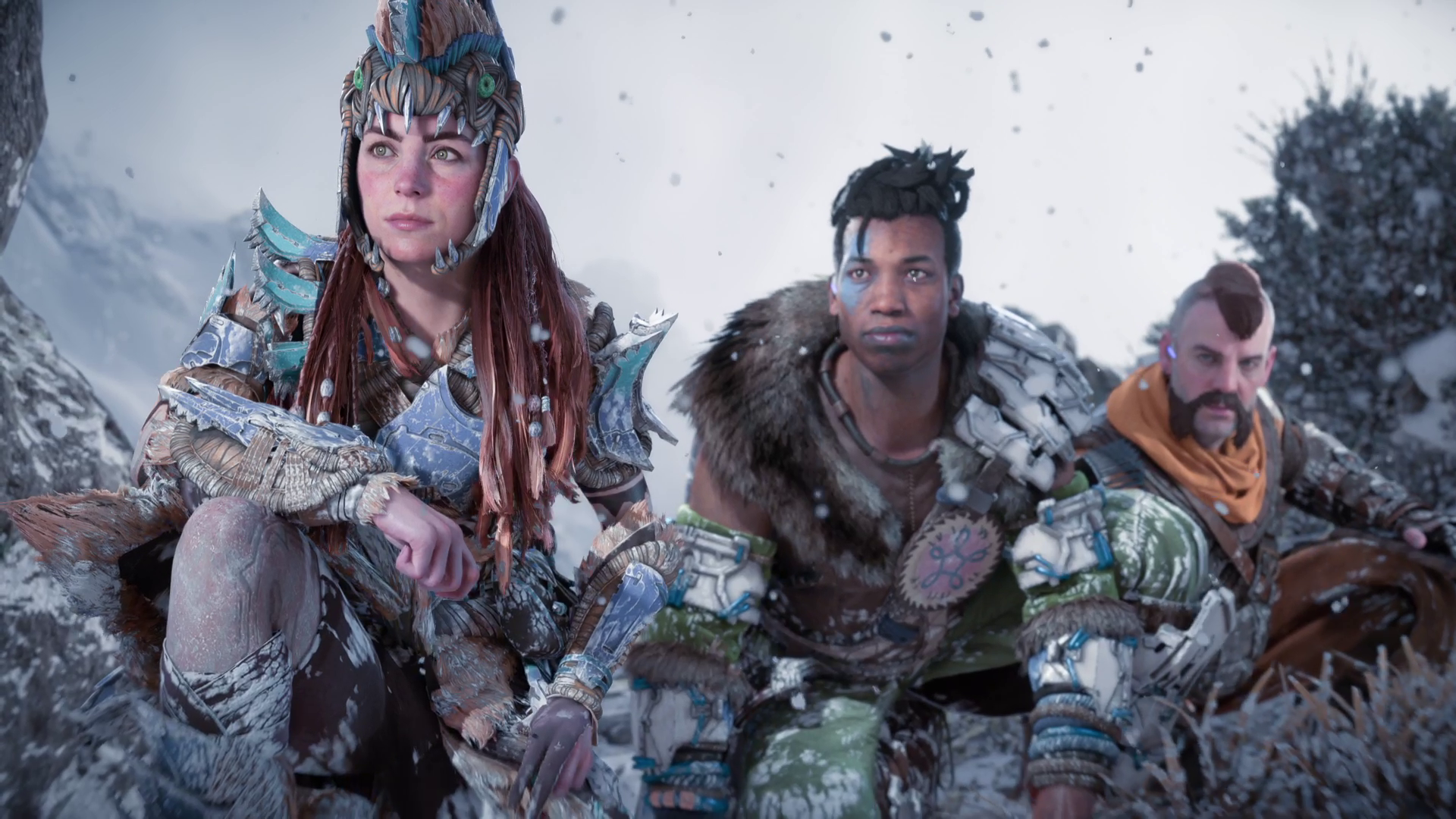
There's a lot to unpack in the Horizon Forbidden West story and Aloy's latest adventure. After 2017's Horizon Zero Dawn, we drop into Aloy's life six months after the original game, where the world is being overrun by Red Blight and slowly dying.
With players now experiencing for themselves just how Aloy – and her friends – work to repair the biosphere, I spoke with Ben McCaw, narrative director, and Annie Kitain, senior writer, from Guerrilla Games about Aloy's journey, her companions, and the revelations that she makes over the course of the game.
Of course, if you haven't finished the game or are worried about Horizon Forbidden West spoilers this is your last chance to get out, so don't read on unless you've seen the Horizon Forbidden West ending for yourself.
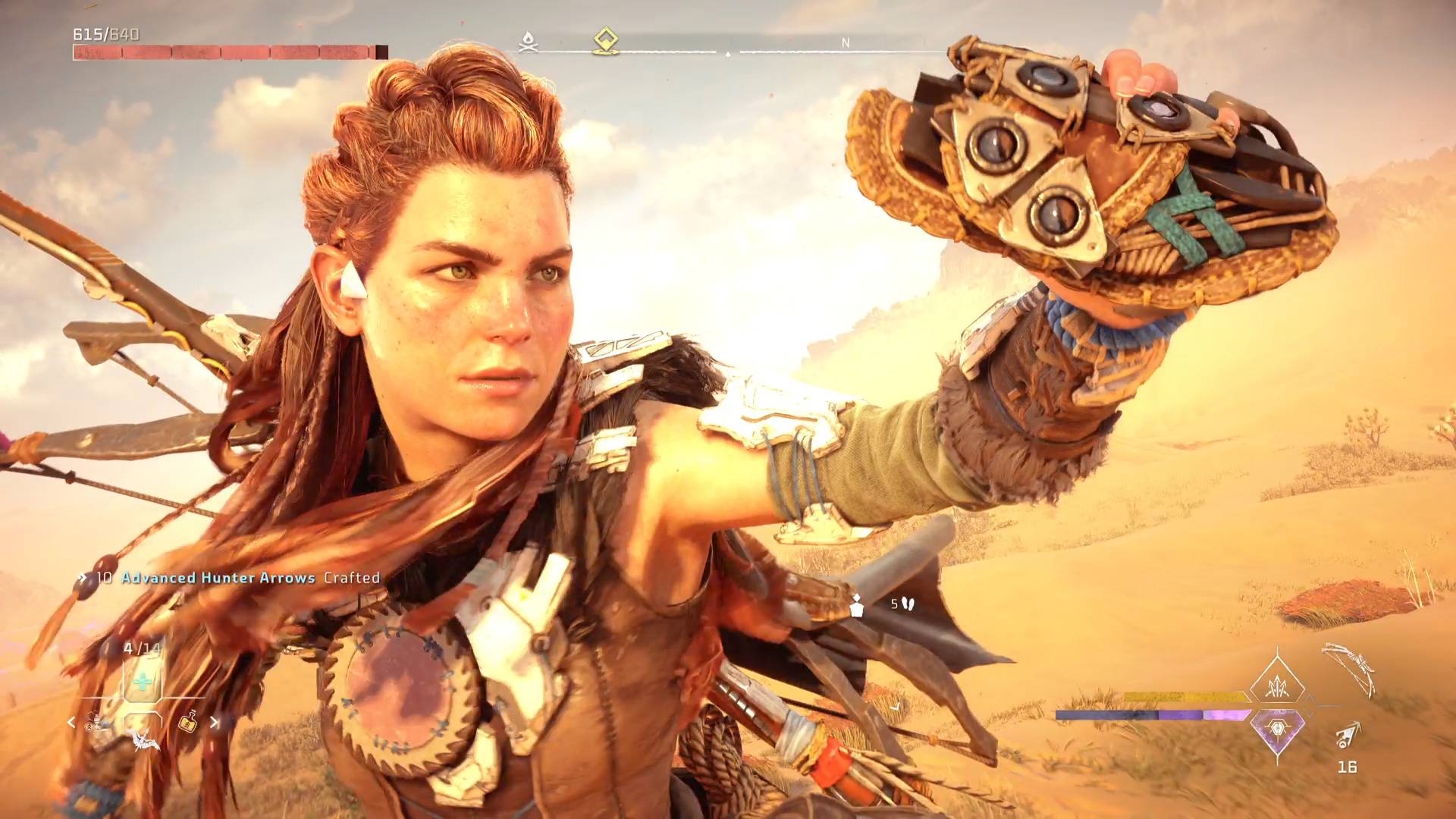
GamesRadar: I think it's probably easier if we start at the beginning. Those opening hours with Aloy, she's almost aggressively independent. Clearly something's happened in those six months where she's just completely withdrawn from the world. How important was it to make her quite unapproachable and isolated?
Annie Kitain: One thing that we really wanted to focus on, going into telling the next chapter of Aloy's story, is the pressure she's now feeling. In Horizon Zero Dawn, she wanted to know the origins of her birth and who her mother was. And she found that out – she learned she's a clone of one of the most brilliant women scientists of the 21st century. And while that answered that question, and brought some comfort to her, it also now puts this burden on her of trying to live up to Elisabet's example.
Aloy accomplished great things at the end of Zero Dawn – she stopped an apocalypse from happening – but she knows that her mission is only half complete. And so, with the Blight spreading and the world falling apart around her, she has this constant reminder that she needs to find a way to permanently fix the biosphere and find a way to heal the world. So really, going into the start of the story, it's been six months of her trying to find a solution and feeling that pressure to live up to Elisabet's legacy.
Ben McCaw: If I can add to that: If you imagine the night that Aloy succeeded in defeating Hades – she's at Meridian, and there's this huge party going on. That would be a kind of torture for her. Because if you think about it, first of all, it's only the second party she's ever attended. And there's been a pretty big difference between the first one at Mother's Heart where she was completely unwanted in a lot of ways, and this one where she's like the guest of honor.
Sign up to the GamesRadar+ Newsletter
Weekly digests, tales from the communities you love, and more
But she alone in that entire group knows that her job is only half done. And really, there's a ticking clock that's in the background. That's unbearable for her. And, you know, she needs to get out there and get the job done. And as Annie said, a lot of that has to do with comparing yourself to her genetic mother figure.
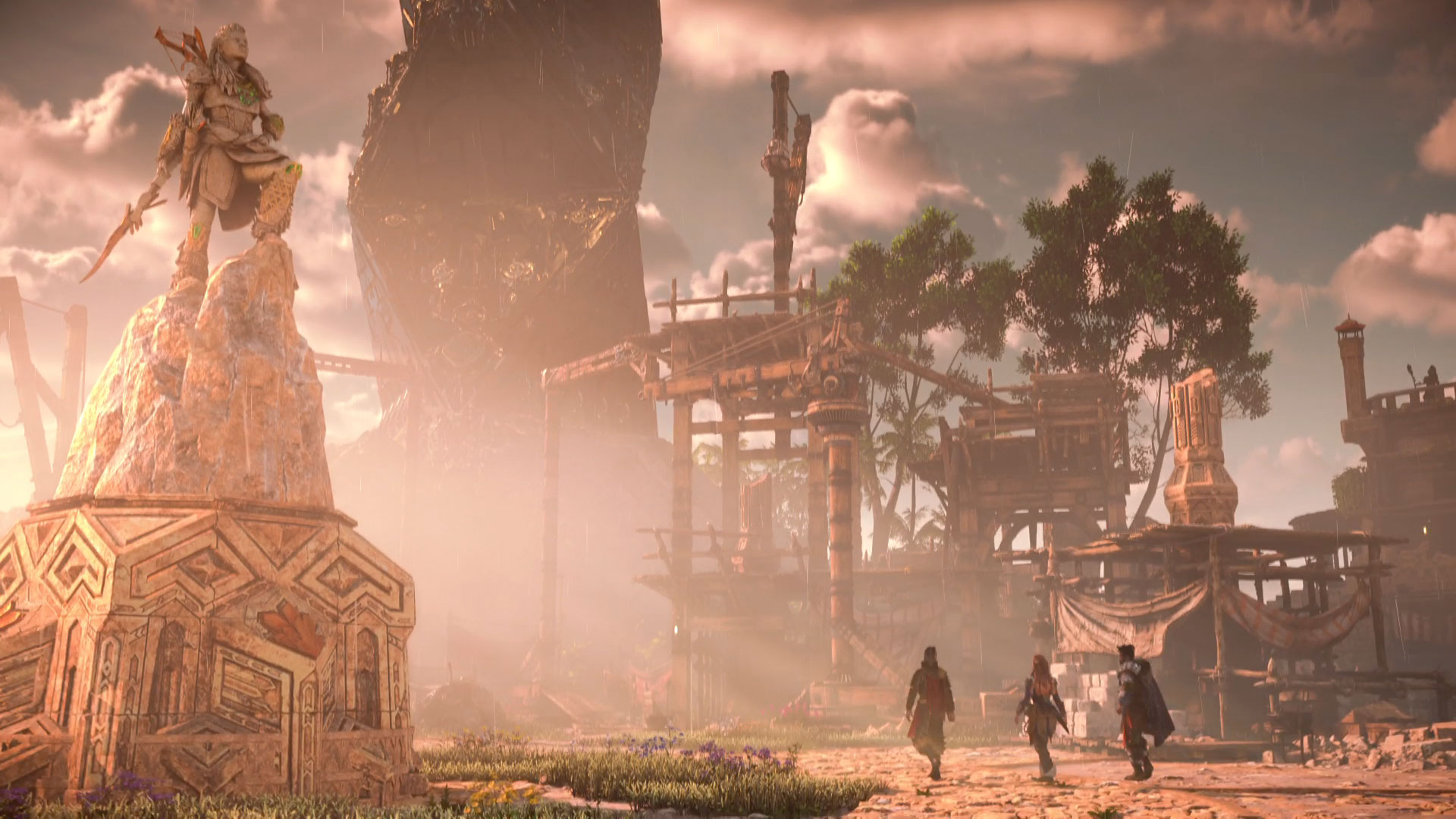
GR: There's such an awkwardness when she returns to Meridian in Forbidden West and realizes they've built a statue of her too.
McCaw: That statue. There was a lot of back and forth about that statue; it went through many versions. At one point we actually had the sculptor [in Meridian], where you could actually have a conversation with them.
GR: There's such a huge gulf between how Aloy is perceived and how she really feels about quite a lot of elements of life. Like when Erend has been investigating the Old Ones' concept of parties and birthdays and wants to throw Aloy one as a surprise. As a player, I was so excited by that, but Aloy is exactly the opposite.
McCaw: Well, you know, it is a thing in the Sacred Land where she grew up – I mean, she wasn't really part of this – but that when it's someone's birthday, they essentially just celebrate their mother. It's not even like a thing where you have a party in the traditional sense, it's more like that if your mother was alive, your [birthday] would be all about her.
Kitain: Some of the fun of writing some of this stuff, too, is looking at what other people like the Carja or Varl or Erend would think, but then looking at how Aloy with her outcast's upbringing would do that.
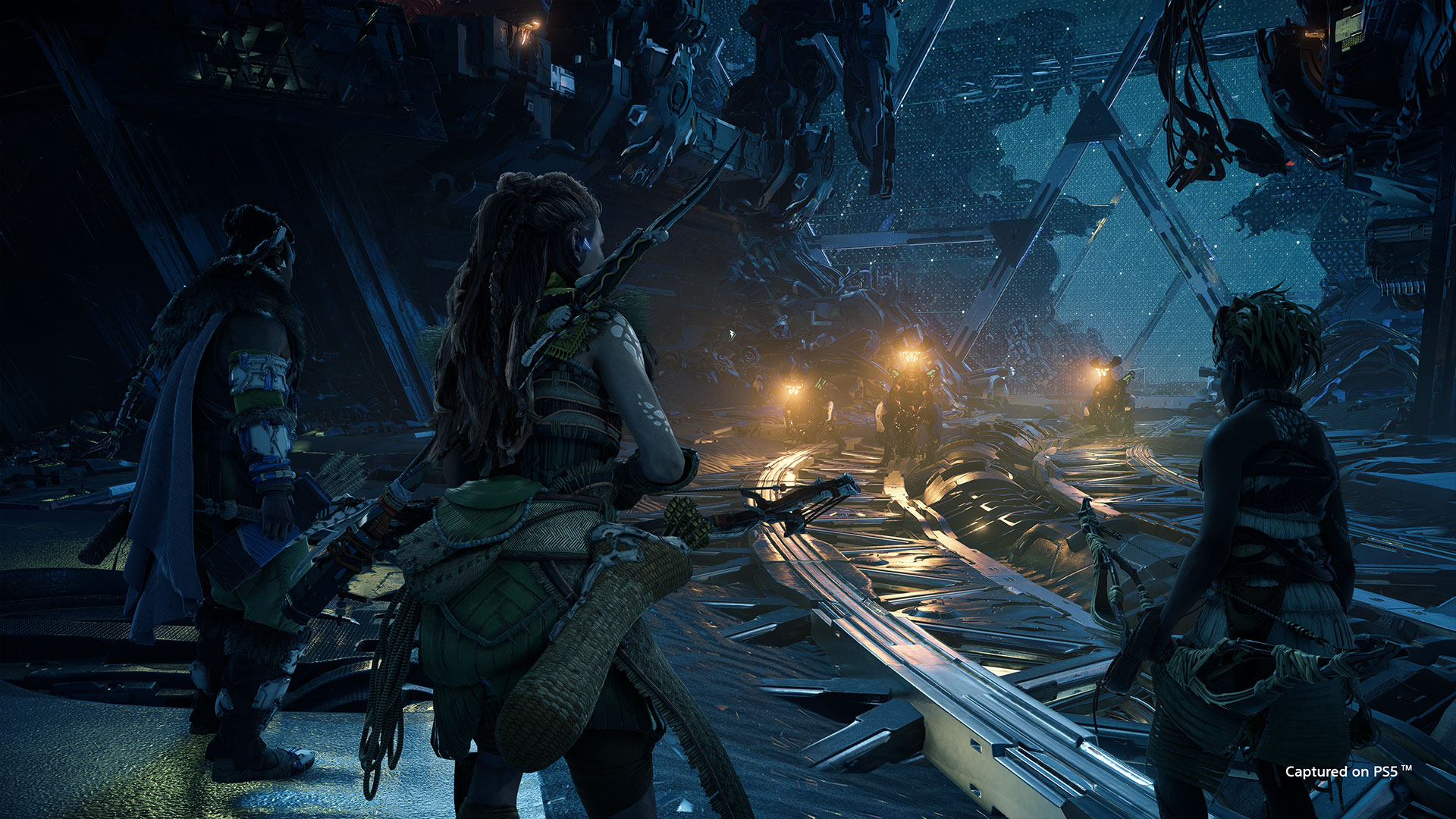
GR: She goes through such an evolution in Forbidden West too, almost because her friends are so fiercely persistent in forcing their way into her life. Was that a really hard dynamic to juggle when trying to introduce those classic characters that everyone's going to be excited to see, and then balancing Aloy's pretty negative reaction to them?
McCaw: Yes, it was extremely difficult. I wouldn't hesitate to say that it was one of the most difficult parts of that writing process is trying to calibrate that perfectly. I think Annie though made one of the key contributions there, which was a moment when Aloy is talking to Gaia. It's when Gaia has first been reignited and Aloy has this moment of doubt. She needs Gaia to give her that "Can I do this?" affirmation.
In playtesting we found that it was actually the moment for a lot of players where Aloy's dilemma really clicked, where they really understood everything that she'd been through and what she was going through, and why exactly she was treating her friends in that way. So yeah, absolutely, it was a challenge to get that right.
Kitain: Gaia really is the connection to Elisabet. So when we were looking for a moment where we could clarify a lot – how Aloy's feeling and what she's been through – on a more emotional, deeper level. It made sense to have that conversation with Gaia, rather than opening up to someone like Varl or Erend, even though they're characters who care about her deeply – they are, as you say, persistently trying to help her. It just made sense that Gaia is someone who is, you know, a creation of Elisabet that she would turn to that figure and seek this sort of acceptance and questioning of herself.
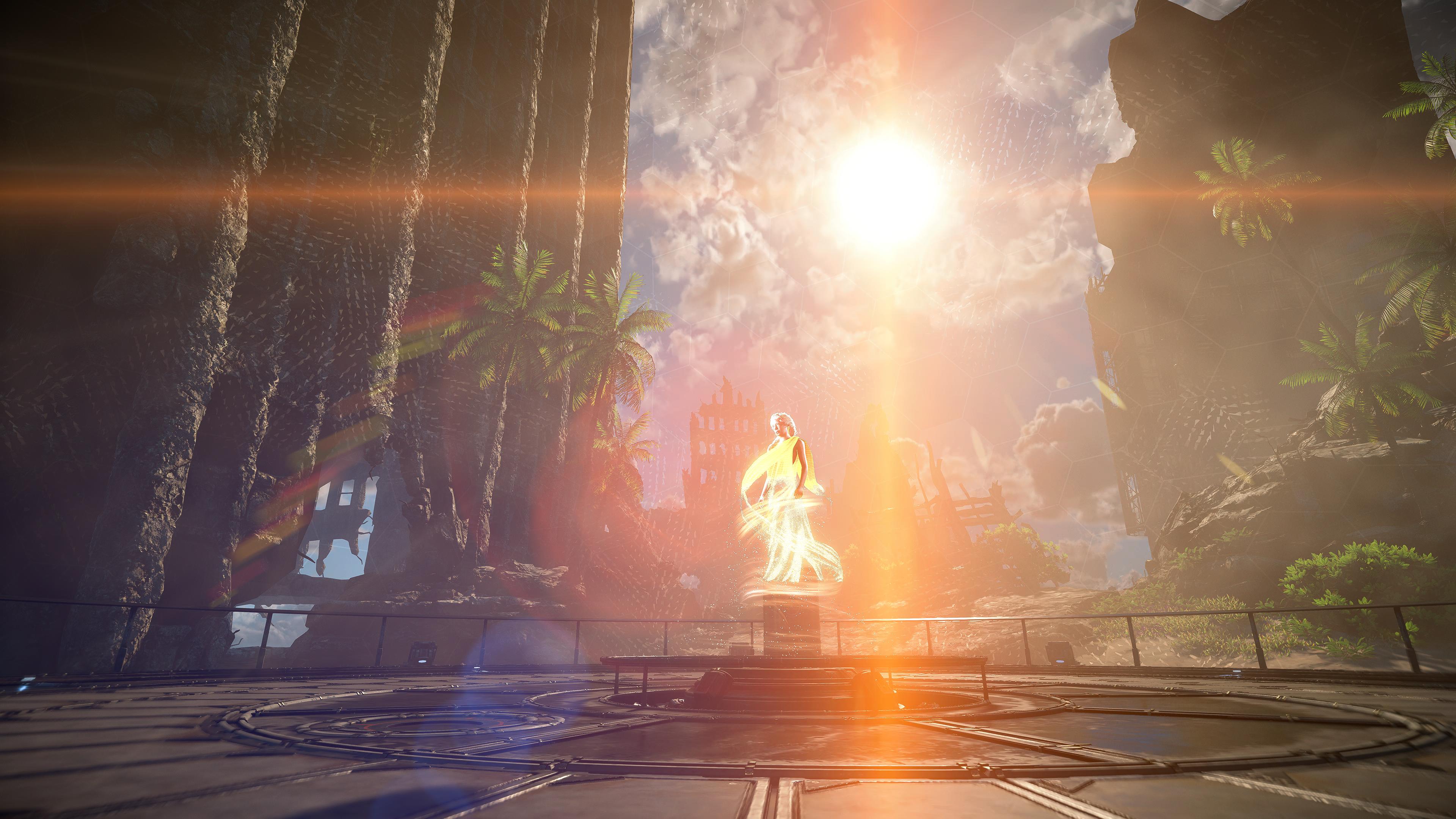
GR: I guess, in a way, Gaia's the only one who truly knows who Aloy is because everyone else is just learning about her true identity and the reality of the world they're living in. Aloy hasn't really got anyone to turn to with her burden apart from more technology.
McCaw: You're absolutely right. In addition to understanding Aloy's past, and understanding the relationship with Elisabet, Gaia literally can read Aloy's entire life story in an instant [through her Focus]. So she really is the only one who can possibly understand, she's the only one who can kind of see it… Or see it with objectivity.
GR: It's almost bizarre then that Gaia chooses to share the width and breadth of Aloy's discoveries and her life events with her friends when they eventually come to the base.
McCaw: Well, we feel like Gaia knows – Gaia is much more intuitive than you might think. She's not just an AI, she's, in some ways, the first-ever complete feeling AI. One that's designed to have an evolving moral and ethical conscience in someone's design – a machine that couldn't have performed its duty unless it cared. And so, that caring kind of ripples out to how she handles the base and the companions.
Kitain: And I think one thing we also wanted to focus on was that Aloy does want to connect to her friends. She does want to deepen her relationships with them. But she's held back by her own feelings and thinking that Elisabet almost single-handedly saved the world, and so she feels she needs to do the same. It's that conflicting desire of, 'I want to be with my friends, and I want to share things with them, but I'm so used to being just by myself, and I feel like I should always be alone in what I'm doing.' That creates that conflict [for Aloy].
McCaw: Always on the mission.
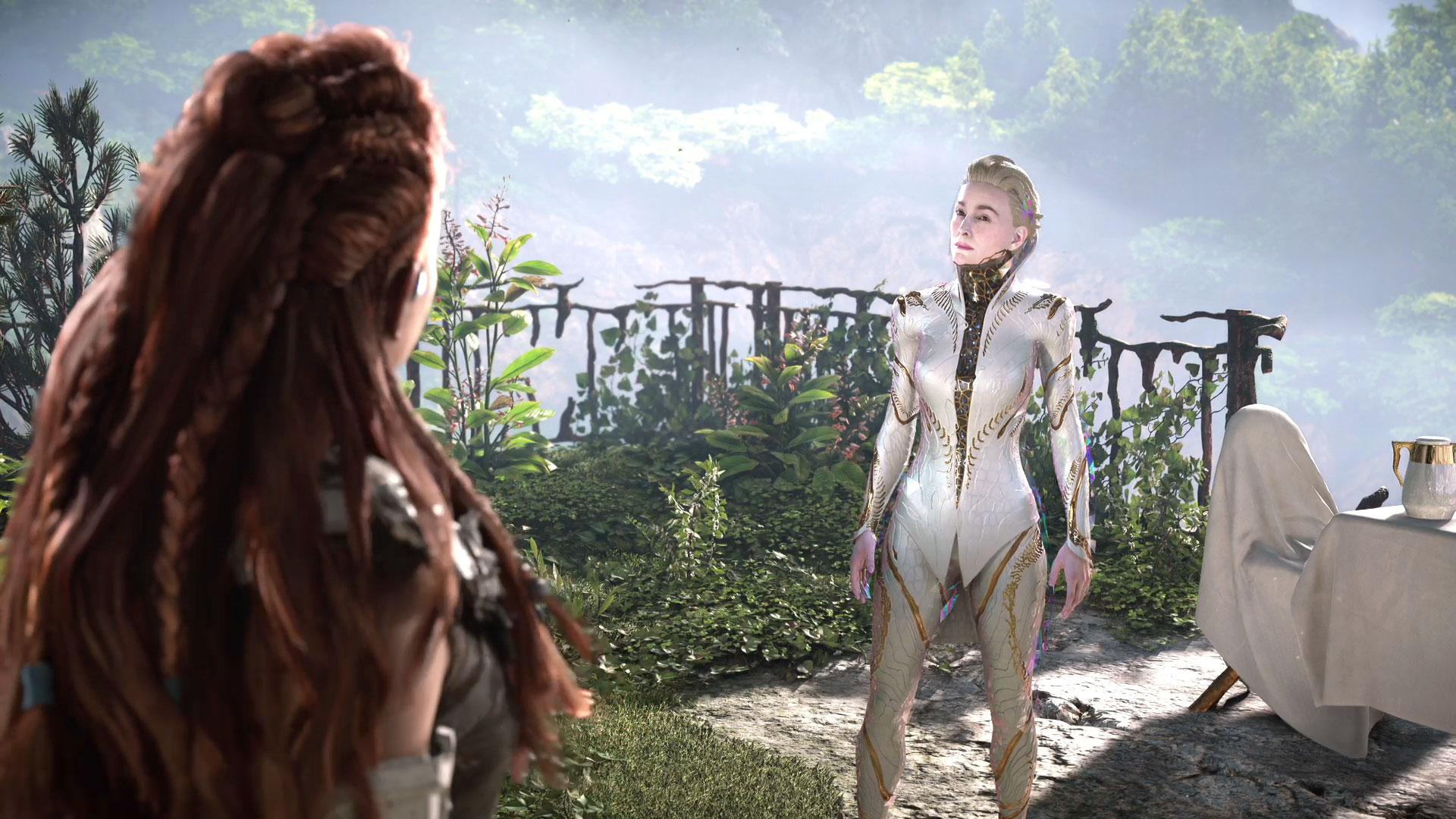
GR: It's really interesting then that when she meets Tilda later, the thing she really wants to know more than anything is what Elisabet was like as a person – did she have friends, etc and so on – almost as if she's seeking validation for wanting some of those things herself.
McCaw: So, first of all, we did a lot of thinking about what someone like Elisabet Sobeck would really be like, and we ultimately came to the conclusion that she's actually a very distant person. She's someone that could care much, much better in the abstract than she could in terms of some kind of intimacy. And we wanted that paradigm to be reflected back on Aloy. We wanted that to be directly transmitted to Aloy.
And, you know, ultimately, that's not the person that Aloy wants to be. Even though she wants very badly to be like her mother figure, she doesn't really want to be that person.
Kitain: To add on to that, from Aloy's standpoint, before she meets Tilda she talks to Gaia. And Gaia is the one who, until that point, was the most connected to Elisabet. But now she's meeting someone who actually knew and was a friend of Elisabet back when Elisabet was alive, and that's different from talking to the creation of Elisabet's. And Gaia in this version is also not the same Gaia that destroyed herself in the first game, so it's a bit more removed that way.
Having the opportunity to talk to someone who knew Elisabet in the flesh, and who loved her, was what really sparked Aloy's interest initially - along with wanting to see whether she could measure up [to Elisabet].
GR: That moment with Tilda felt like such a catalyst for the story, because actually learning more about the isolation of Elisabet has made her appreciate what she has back at the base. For me, it felt like such a point where she actually switches to start thinking maybe these people are worth saving as much as the Earth itself.
McCaw: That's exactly what we're going for with that. Like Elisabet earlier in the game, Aloy is caring about the world in the abstract, but then it becomes very real. It becomes about the people around her and then linked to the tribes themselves. This is a world that's worth saving and these people are worth saving, not just because that's the right thing to do, but because essentially, I love them, or I want to be part of that group.
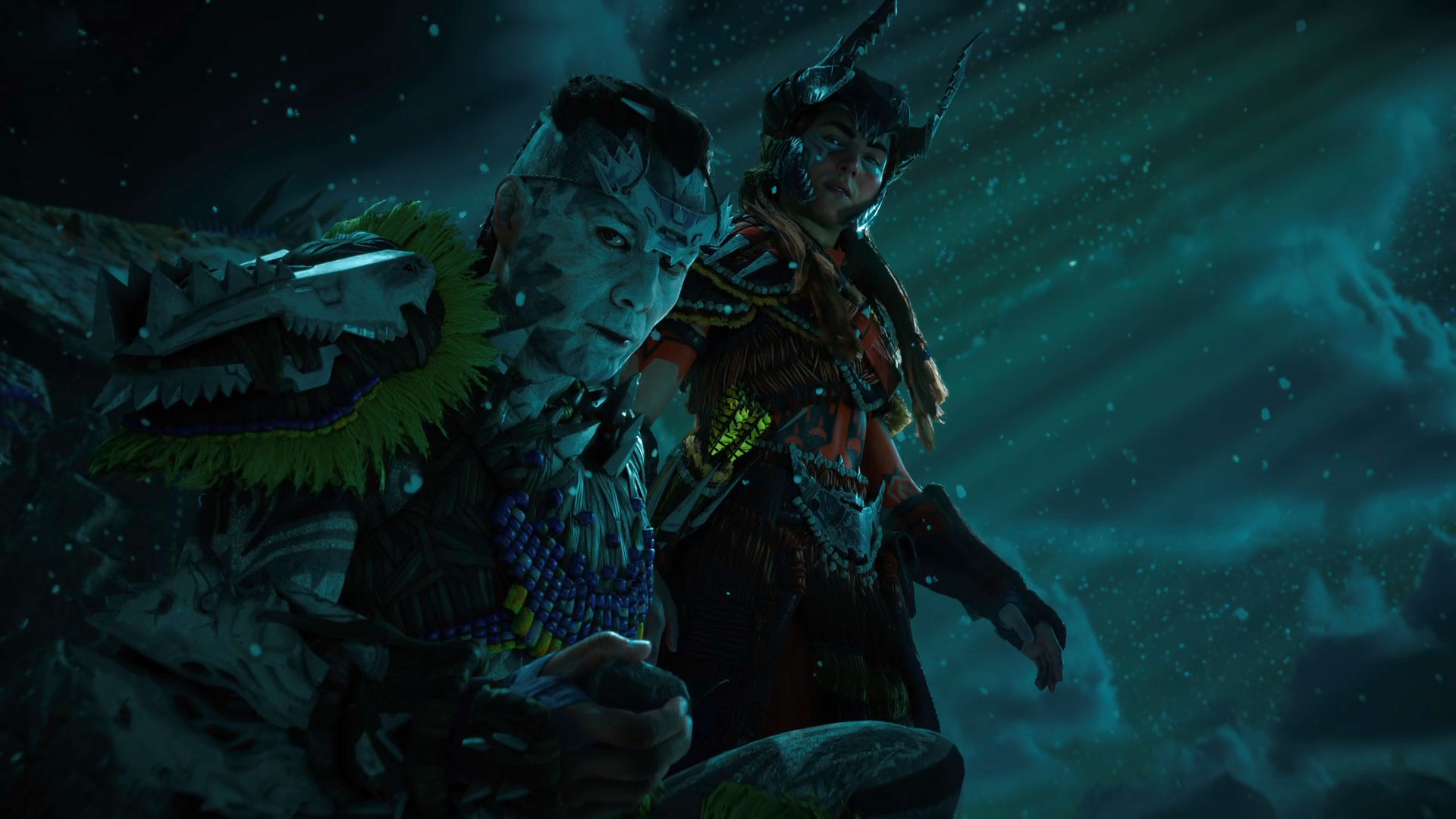
GR: The optional loyalty-esque quests that you do with that group also help build a better picture of Aloy's connection with them – such as Kotallo's arm and the Land Gods with Zo.
Kitain: That ties into the goal that we had of wanting to give the player the chance to deepen the relationship with those characters. Spending time with them in the base, but also on these optional missions and helping them with something that's very important to them, is what we landed on for how we can allow the player to spend more time with these characters and get to know them.
McCaw: That was a key delta that we wanted to attack from the first game to the second. We felt, in a lot of cases in the first game, we didn't really get to spend as much time with some of the side characters. This translated over to the companions and the quests that you're talking about – and particularly Varl – but it also translated to side-quest characters. So we wanted to make sure, for instance, you got to spend more time with Drakka and Yarra, and also with Boomer, and Delah, and there are other examples. So we really made an effort to have some of these characters return and that you get to know them a little bit more. That just works with the theme of the game, which is about integrating Aloy into a kind of society.
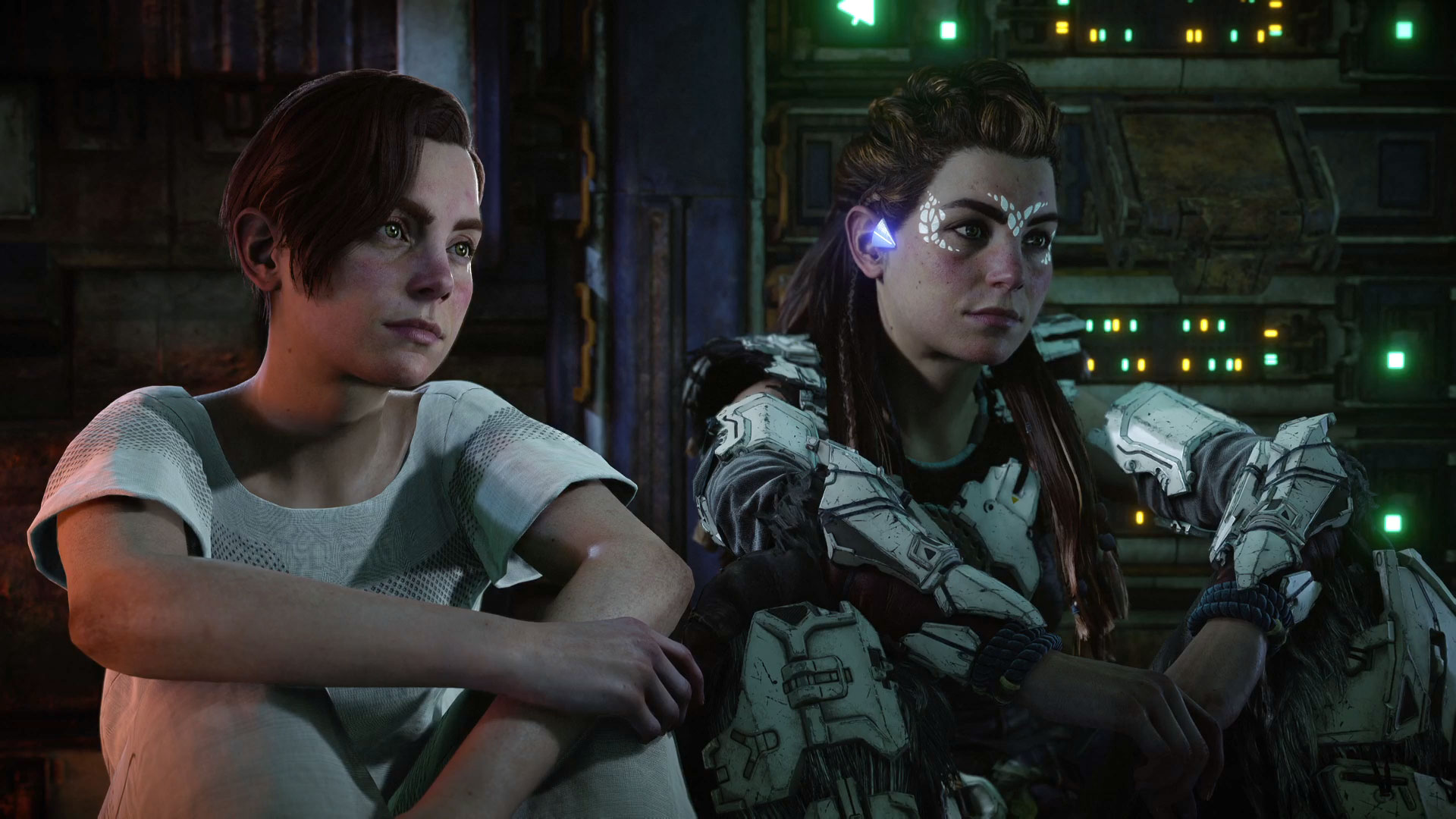
GR: That also extends to Aloy's relationship with Beta too, right? There's such a huge gulf between those two as characters, despite the fact that they're genetically the same person. How hard was that to balance? Especially in the moment where they have their Rost moment?
McCaw: Well remember a minute ago when I said that one aspect of the game was very difficult to write? Well, this was the most difficult one. Getting that right took many drafts and revisions and rethinking. But it was critical. It's the emotional core of the game. And it's also, so to speak, the alpha example of the problem that Aloy faces, which is that she wants to love the world, but she doesn't necessarily love everyone in it – including this kind of reflection of herself.
We needed that change that takes place to be pretty momentous. That's why, you know, she had to sort of not like Beta at the beginning, right? Otherwise, it just doesn't work.
Kitain: Beta represents all of Aloy's conflicts about wanting to be like Elisabet, wanting to connect to others, but feeling isolated. All of that coming together into one person. It's Aloy trying to deal with that.
McCaw: We sometimes referred to Beta early in the game as a dark mirror for Aloy – where you look in the mirror, and you just don't like what you see. Mostly because Beta's essentially frightened, and abused. And those are things that Aloy wants to bury in herself; her upbringing, her fear. So we wanted that to hurt a little bit, to sting to have to see that, but then to have her accept those things as well.
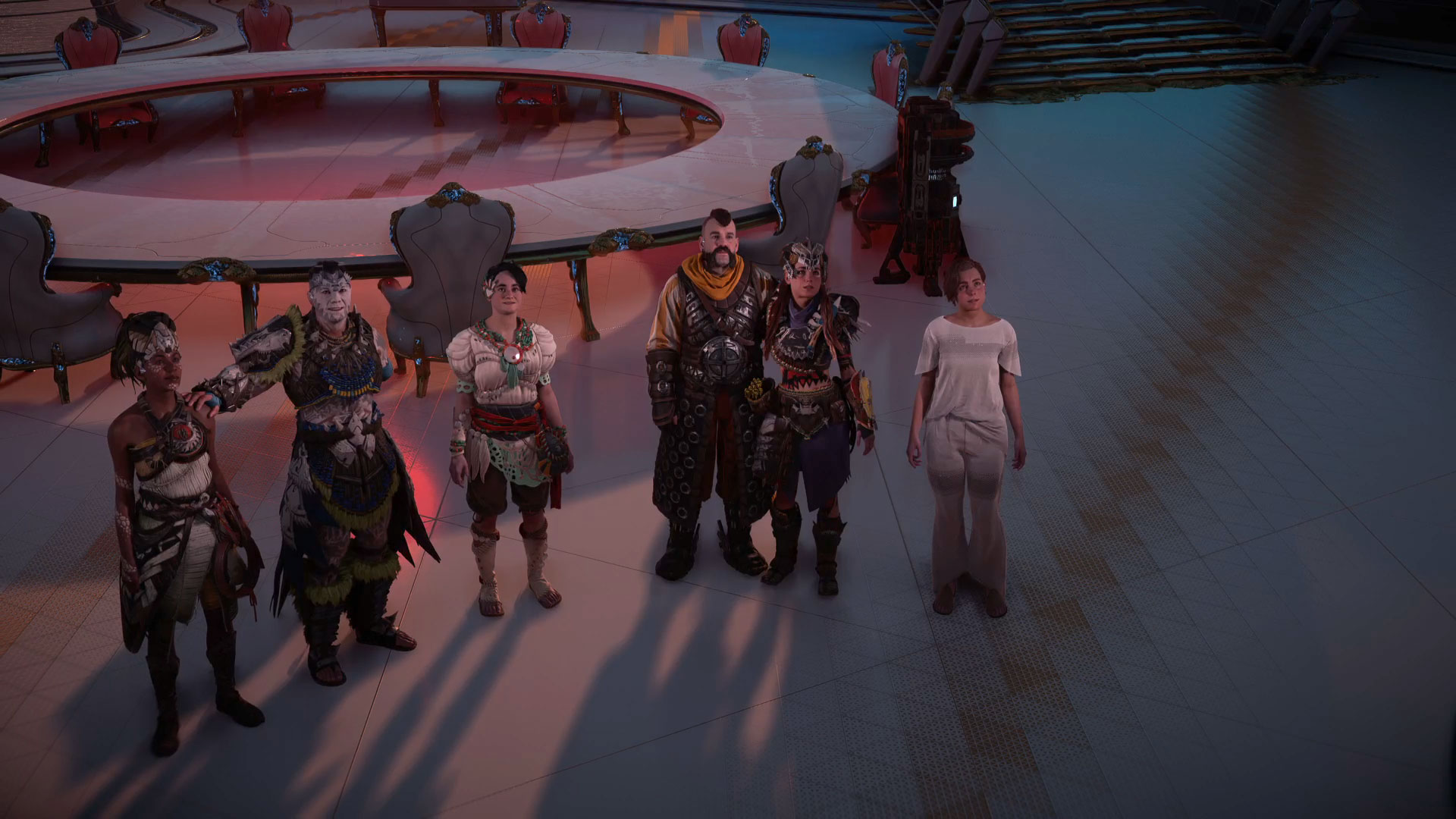
GR: I love the fact that that also happens to Sylens too. When he sees them all at the end and decides not to get onto the rocket into space by himself, it's almost like he's gone through the same realization as Aloy about being a part of something.
McCaw: Can Sylens ever be truly trusted? I don't know. Is he always going to be in the pursuit of knowledge to the end of his days? Yes. But also, does he have a little bit of humanity? Yes, he does.
And also, if you think about it, what he's actually thinking about doing is getting on a spaceship and leaving everyone behind. And that is a momentous decision. I mean, you're really alone when that happens. He's not quite ready. He's not quite ready to do it.
Horizon Forbidden West tips | Horizon Forbidden West map | Horizon Forbidden West Greenshine | Horizon Forbidden West red crystal growths | Horizon Forbidden West Diving mask | Horizon Forbidden West best armor | Horizon Forbidden West power armor | How to fly in Horizon Forbidden West | Horizon Forbidden West best weapons | Horizon Forbidden West Metal Flowers | Horizon Forbidden West Explorer or guided mode | Horizon Forbidden West lenses | Horizon Forbidden West Tallnecks | Horizon Forbidden West Vistas | Horizon Forbidden West Cauldrons
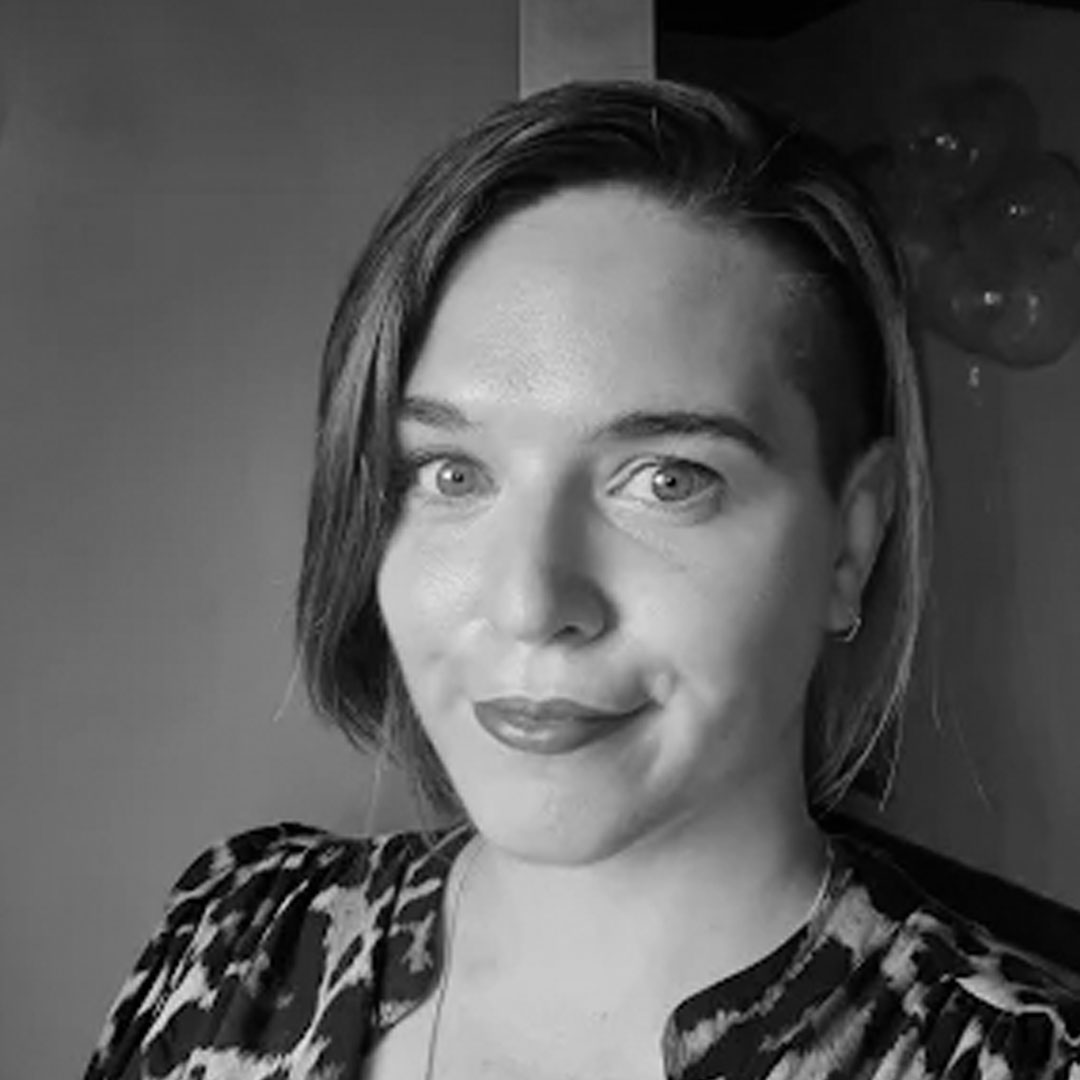
Sam Loveridge is the Brand Director and former Global Editor-in-Chief of GamesRadar. She joined the team in August 2017. Sam came to GamesRadar after working at TrustedReviews, Digital Spy, and Fandom, following the completion of an MA in Journalism. In her time, she's also had appearances on The Guardian, BBC, and more. Her experience has seen her cover console and PC games, along with gaming hardware, for a decade, and for GamesRadar, she's in charge of the site's overall direction, managing the team, and making sure it's the best it can be. Her gaming passions lie with weird simulation games, big open-world RPGs, and beautifully crafted indies. She plays across all platforms, and specializes in titles like Pokemon, Assassin's Creed, The Sims, and more. Basically, she loves all games that aren't sports or fighting titles! In her spare time, Sam likes to live like Stardew Valley by cooking and baking, growing vegetables, and enjoying life in the countryside.


